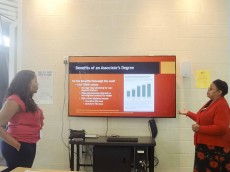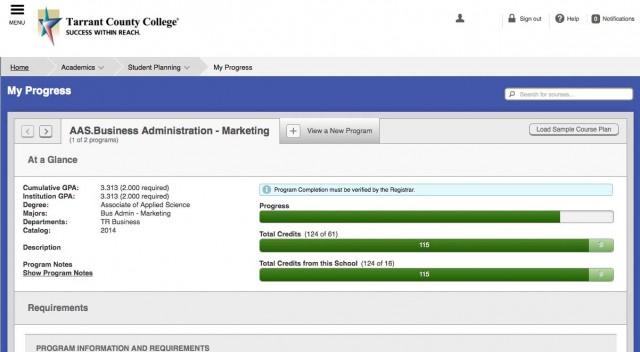By Aubrey Polk

Antonio Giovanni Soresh/The Collegian
When going to college, students almost always consider a bachelor’s degree and don’t even think twice of obtaining an associate degree, TR students were told April 12.
TR success coach Jasmine Gilmer and academic advisor Demetrice Hodges discussed academic challenges and job-related, educational and career goals when pursuing an associate degree.
“There are multiple benefits to obtaining an associate degree,” Gilmer said.
The first is having set a goal and having met it. That always looks good on a resume, Gilmer said. And those who enter the workforce after earning an associate degree typically earn higher pay than those without a degree at all.
“You can always get your associate, enter the workforce and then go back to obtain a bachelor’s degree,” she said.
Attending a community college not only will save someone money, but it allows students to adjust to college life, Hodges said.
“Tuition fees are significantly cheaper for an associate degree than for a bachelor’s,” she said.
Also, most associate degree programs are completed at a local community college, which gives students the option of living at home, which is significantly cheaper than having to pay for room and board that often comes with going to a four-year university.
“Students who start out with obtaining their associate degree have multiple benefits, but ultimately it is up to the student to decide what is best for them and their aspirations,” Gilmer said. “Consider every option in your education, career and job when working toward your degree.”




























